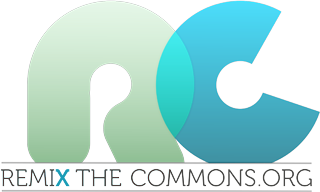
The 11 and 12 November, the DEEEP project , co-funded by the European Union program , gathered in Johannesburg (South Africa) 200 activists from around the world to rethink the framework of development NGOs and initiate the construction of a ” World Citizens Movement .” This meeting is the starting point of a process that will last two years of citizen mobilization for change and global justice. A digital platform is dedicated to it. During the conference, the participants began to learn from the work of civil society, its modes of organization and action in different areas around the world and produced a document, “The Johannesburg Compass: Questions and orientations” to define the principles that should guide the work of the two coming years.
Invited to participate in this process, I have contributed to discussions and writing text to feed as much as possible of the concept of the commons. Conceived initially as a declaration of principles supported by a shared vision, this document has become a guide for the process itself, based on a few key ideas such as the need to de-colonize our minds and de-institutionalize development organizations. The result reflects the will of renewal in both form and content of the action, but leaves unanswered, at least for the moment, questions about the nature of a worl citizen movement, if it is one motion, and the nature of the process of the two next years of workfollowing the conference.
It seems to me that today , a world citizens movement has to revolutionize the way for everyone to exercise their citizenship, and to be aware of. One of the roles of NGOs and CSOs should be to support the politicization of everyday life in the field of health , nutrition , education , work, .. .. etc, within the perspective of the commons. How to do this on a massive scale ? Appart from action campaigns on strategic objectives at the regional or global level, made by organizations, that are the infrastructure of civil society, it is to renew and articulate what is in France called popular education by integration of social neighborhood and mediated by computer networks practices. Such a dynamic would allow each to be more confortable with broader perspective and the international agenda. The challenge is to build bridges with multiple communities of belonging, not to provide them with the leadership of NGOs and movements, but to recognize and legitimize their leaderships at different scales of power (from local to global).
To listen to the conference participants at Johannesburg , it looks like it must also go through the (re)discovery of the commons within organizations, regardless of their size or intended to rebuild the project itself. This can be a wide perspective of the organization (NGOs / CSOs ) to continue the work from Johburg. In this sense, it will be better to work on Our commons than to define THE commons and to try to transform organizations working on their values, projects and actions, rather than seeking Commons as a theoretical or ideological framework.
Another avenue is to share les lessons learned by activists of the intangible and knowledge commons that, since the emergence of the computer have been able to build a movement that defends their values, distributed forms of collaboration , openness and freedom , sharing and solidarity , personal empowerment and participation in collectives, acting on a small scale while remaining in a universal vision. This movement is generally invisible as a social movement for people who are not activists. Everyone uses free software, access to culture and free knowledge, most of the time without paying attention. Yet organizations of knowledge and free culture are structured and are ” NGO ” or ” OCS ” weighty. Just consider the most visible in the public area alike Wikimedia Foundation, or the weight of this movement in the industrial sector (IBM , Android, …) or the work of lobbying done by groups aloke EFF Quadrature net, to realize that. It is a movement to maturity. This experience and the culture it develops worth sharing.
Would not it be helpful to think a similar movement in the field of materials, urban, rural and natural commons?
Frédéric Sultan
